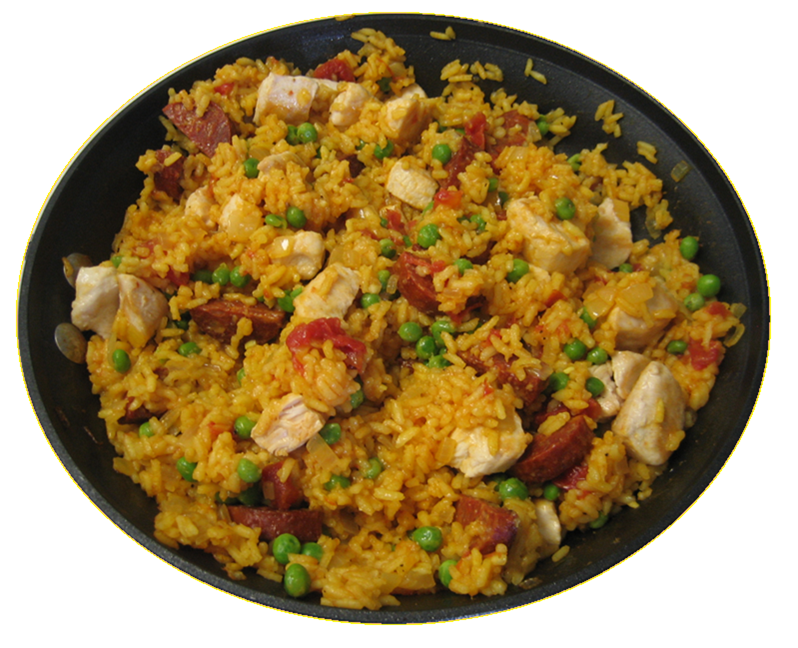
| Home | FAQs | Book Contents | Updates & News | Downloads |

How much is a plate of paella worth? For those who are not familiar with the joys of "mixed paella", it is a Spanish free form rice based dish containing meat, seafood, vegetables and beans (and well worth seeking out). What you have to pay for it obviously depends on various factors, in Luanda (the most expensive city in the world at the moment) a price of more than $100 would not be surprising, but I'm thinking about what it is worth.
The mythical rational consumer compares what they feel the food is worth with the payment the supplier demands and if the price is low enough buys the meal. On the consumer's side there will be a range of potential paella eaters that each have their own idea of what the dish is worth, ranging from those that dislike fish (who therefore are not willing to pay very much at all) to those who are both hungry and have cash. In most of the world the purveyors will have already guessed at the balance between what they can supply and the local demand and will have proposed a price. How much would the paella's value change if, say, the chicken were omitted? The value is entirely determined by the consumers, so the only way to answer that question requires an insight into their response to the new dish, it could be that they are focused on the other elements and the omission of chicken has no noticeable impact, alternately it could be that they refuse to consider the resulting dish a proper paella and switch to pizza instead, in that case the value has drops to near zero. In reality one suspects the final value will be somewhere between those two extremes. According to "Value based Management" the rational paella producer should juggle with different raw ingredients and preparation stages test the resulting change in customer enthusiasm and identify the result that maximises profit. In reality life's too short for that, the chef makes paella the way they were taught, if you were to suggest that a cheaper type of rice would increase profits you'd probably be thrown out.
In some ways oil company operations are like cooking paella. There are so many different potential sources of information, distinct disciplines interpreting it and diverse ways of combining those insights into business decisions, that there is not enough time to try out all the alternate ways of organising the processes. If an oil company wanted to really try using "value based management" to make their budget decisions then each discipline and internal service would have to be measured in terms of the costs (of inputs and processes) and the eventual business impacts. A comprehensive study like that would provide a fantastic resource for radically improving overall results, but as far as I know no oil company has ever come close to doing that work. Oil companies have always set budgets by taking last year's budget and tweaking it a bit (and then scrabbling around to fund the headline infrastructure project that has inexplicably doubled in cost again). Aerospace, healthcare and retail companies have all dramatically ramped up their budgets for data handling over the last decade, driven by fear of competition from innovative peers, the oil industry hasn't... yet.
Article 30 |
Articles |
RSS Feed |
Updates |
Intro |
Book Contents |
All Figures |
Refs |
Downloads |
Links |
Purchase |
Contact Us |
Article 32 |